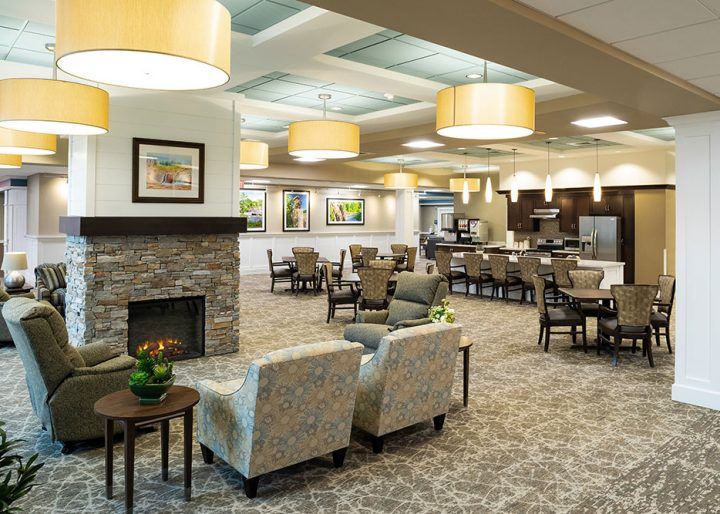Explore specialized Memory Care facilities designed for cognitive health.
Discovering the Right Assisted Living Option for Tailored Memory Care Programs
The process of selecting an appropriate assisted living remedy for customized memory care programs needs a nuanced understanding of individual needs, particularly as they connect to cognitive disabilities such as Alzheimer's and dementia. It is crucial to analyze not just the certifications of the team yet additionally the accessibility of personalized treatment plans that accommodate the specific difficulties homeowners face. The impact of appealing activities and a helpful area can not be overemphasized. As we explore these variables, the concern remains: what genuinely comprises an optimal setting for memory treatment?
Comprehending Memory Treatment Requirements
Recognizing the one-of-a-kind memory care demands of people with cognitive disabilities is critical for offering reliable support and improving lifestyle. Cognitive disabilities, consisting of Alzheimer's condition and other types of dementia, dramatically affect a person's ability to procedure info, communicate, and preserve self-reliance. Therefore, customized strategies are necessary in resolving these obstacles.
Individuals with memory disabilities usually experience complication, mood changes, and disorientation, demanding an encouraging and organized atmosphere. Memory care programs ought to concentrate on creating a risk-free space that encourages social interaction, cognitive involvement, and emotional wellness. This can be achieved via specialized tasks, such as memory games, art treatment, and memory sessions, which promote cognitive excitement and maintain personal identification.

Reviewing Staff Qualifications
The qualifications of team participants in memory care programs are vital to delivering top notch support for people with cognitive impairments. Examining staff qualifications entails analyzing both instructional history and practical experience in senior citizen care, particularly in memory-related problems such as Alzheimer's and other types of dementia.
Look for team who possess pertinent qualifications, such as Certified Mental Deterioration Specialist (CDP) or specialized training in memory care. These credentials indicate a dedication to recognizing the intricacies of cognitive decline and effective communication approaches tailored to residents' unique requirements. Furthermore, ask about recurring training opportunities that personnel join, as constant education and learning is essential in a field that progresses rapidly with new study and ideal techniques.
Moreover, examine the staff-to-resident ratio, as this directly affects the top quality of treatment. Inevitably, a well-qualified team is critical in fostering an atmosphere that enhances the dignity and high quality of life for people in memory care.
Importance of Personalized Treatment Plans
Customized treatment strategies play a critical function in boosting the health of individuals in memory care programs. These plans are tailored to the distinct demands, preferences, and abilities of each citizen, guaranteeing that care is both pertinent and reliable. By considering elements such as medical background, cognitive feature, and personal rate of interests, caregivers can create a comprehensive strategy that advertises self-respect and regard for each individual.
The relevance of customized treatment plans extends past fundamental treatment demands; they foster a sense of security and familiarity, which is important for people experiencing memory difficulties. By dealing with specific behavior patterns and psychological actions, caregivers can apply techniques that minimize anxiety and boost overall high quality of life.
Additionally, customized treatment strategies assist in better communication among personnel, go to website family members, and doctor. This joint method ensures that every person involved is notified and straightened in their care initiatives, leading to more consistent and efficient support. Eventually, a well-structured tailored care plan is essential in memory care programs, as it not just improves everyday living experiences yet also adds to the long-lasting health and wellness and happiness of locals.
Involving Activities and Programs

Activities such as art therapy, music sessions, and memory therapy supply avenues for self-expression and cognitive interaction. These deliberate communications not just aid in preserving cognitive capabilities however likewise provide emotional benefits, reducing sensations of isolation and anxiety that often go along with amnesia.
In addition, organized team activities can urge socializing, which is vital for psychological health - Memory Care. Normal engagement in games, exercise courses, and neighborhood trips creates an atmosphere of friendship and support. Customized programs that take into consideration private rate of interests and backgrounds additionally improve interaction, making tasks extra meaningful and effective
Including modern technology, such as memory games and online reality experiences, can additionally serve to enhance the everyday lives of residents, offering ingenious ways to boost cognitive function. Eventually, a concentrate on engaging activities and programs is vital for cultivating a supportive environment that advertises holistic health in memory treatment setups.

Assessing Community Atmosphere
When examining a community atmosphere for memory care programs, it is crucial to take into consideration factors that add to the overall wellness and security of homeowners. The physical format of the area ought to prioritize accessibility and navigation, reducing challenges while supplying clear signs and familiar spots. A protected environment is important to avoid citizens from wandering, which can posture security threats.
In addition, the sensory aspects of the area, such as lights, color design, and noise levels, play a considerable function in boosting comfort and decreasing stress and anxiety amongst homeowners. Natural light and exterior areas advertise interaction with nature, promoting a relaxing ambience that can benefit cognitive function.
An additional essential facet is the availability of skilled team who comprehend the special needs of people with memory problems. Staff must be outfitted to produce a caring atmosphere that motivates social interaction and emotional support.
Finally, the sense of area and belonging is vital. Engaging family members involvement and opportunities for residents to form links with peers can dramatically enhance their overall quality of life. Memory Care. By carefully evaluating these variables, families can make informed decisions regarding one of the most appropriate memory care neighborhood for their liked ones
Final Thought
Finally, selecting a proper assisted living option for tailored memory care programs necessitates a detailed evaluation of individual demands and preferences. Focusing on personnel credentials, customized care strategies, engaging activities, and a helpful community atmosphere is essential for enhancing the high quality of life for homeowners encountering cognitive challenges. By addressing these essential factors, families can ensure that their liked ones get the essential assistance and like foster emotional well-being and cognitive excitement in a nurturing setup.